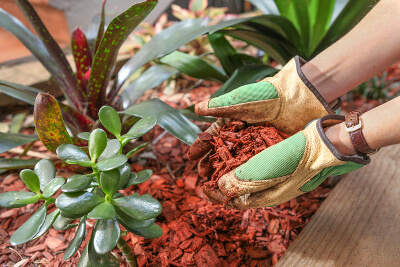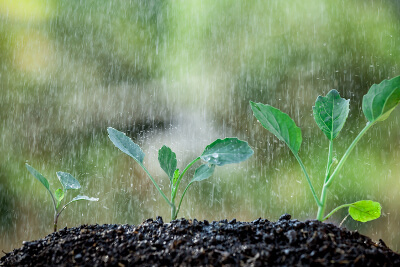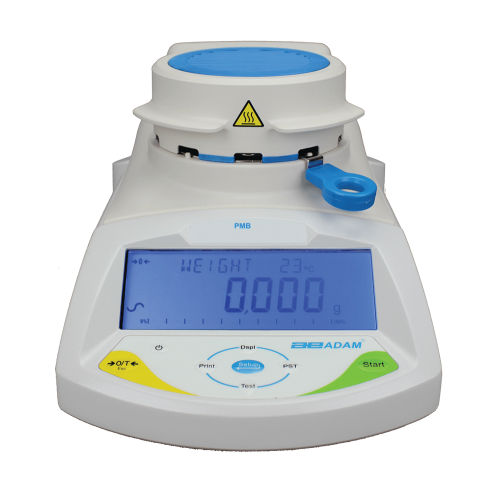
There are several factors that can affect compost, which in turn changes the way it affects soil. Moisture is a significant portion of the weight of compost. Determining the moisture content of compost is very important as moisture affects compost's bulk, density, handling, and transportation. This blog post will explain how moisture affects compost, why it's important to measure the moisture in compost, and how to analyze the moisture.
What is compost?
Compost is the controlled biological decomposition of organic materials. Basically, the process is engineered so that the microbes that decompose the organic materials thrive while destroying weed seeds, invasive pests, and pathogens, and to make sure the decomposition process doesn't create noxious chemicals. That's why compost hardly resembles the material it was created from.
The average UK household, according to Clive Harris, generates about 650 lbs. of compostable material, but most of it ends up in a landfill. If you’re looking for a guide on home composting, Clive wrote a thorough piece here.
It should also be noted that there are a number of different ways to compost, each with their own separate benefits and uses. The most common method that you might expect to find in someone's backyard is cold composting, although it is possible to use a warm compost method or even a worm compost as well. For a more comprehensive guide to the ways in which you can make compost, Danielle McLeod has produced a highly informative article called How To Make Compost: Black Gold for Your Gardens.

Benefits of compost according to the EPA:
- Enriches soil, helping retain moisture and suppress plant diseases and pests.
- Reduces the need for chemical fertilizers.
- Encourages the production of beneficial bacteria and fungi that break down organic matter to create humus, a rich nutrient-filled material.
- Reduces methane emissions from landfills and lowers your carbon footprint.
Soil degradation is a very serious environmental problem, and one that can lead to a loss of agricultural resources. Composting can help maintain the soil and reduce its erosion. Composting can improve farming and other agricultural processes, and make them more sustainable.
What is the moisture content?
The percentage of moisture present in compost (often called moisture content, or moisture percent) is the measure of the quantity of water present in compost. It is expressed as a percentage of the compost's total weight.

How does moisture affect compost?
Regulating moisture levels in compost is a necessary economical decision. The weight of compost affects its transportation; higher weight means higher cost of transport, and less of the product being packaged for the same weight.
Farmers, gardeners, and agricultural and food scientists need compost with the right moisture amount. Too little moisture (35% or less) makes the compost dry, irritating, dusty, more flammable, and less effective because it inhibits microbial activity. Too much moisture (55 to 60%) makes compost heavy, clumpy, harder to spread evenly and messier (not to mention smelly!). Too much moisture can also lead to anaerobic bacteria (more water means less oxygen) and air pollution (because the wrong chemical reactions happen). The ideal moisture percent for compost is 40 -50%. Keeping the moisture percentage in that sweet spot ensures it works effectively and efficiently.

Why is monitoring moisture content important?
Whether you're a proud gardener, food scientist, or a farmer, imagine having an entire batch of compost go bad and having to start over! On a large scale, that's an expensive, time-consuming error. It's better to fix it than having to re-do the entire thing.
Composting is chemistry, and the formula needs to be right for it to work. Knowing how much moisture is in your compost can help you refine the formula until its ideal for your application. For example, if there is too much moisture in your compost, you can add bulking agents like dry wood chips, cardboard pieces, newspaper strips, or materials that decompose quickly, like straw, autumn leaves, lawn thatch, clean sawdust and more. If there is too little moisture, you can either add components with more moisture to your mix or add some water. It can also help you determine conditions in which to keep your compost (covered, with holes, with a sprinkler etc.).

How can I measure moisture?
Oven drying can take a while (some can take more than 24 hours to dry a sample) and is not always ideal for evenly drying compost. Using a moisture analyzer like the PMB will deliver faster, more cost-effective results, and saves time by calculating some of the math for you. The PMB has USB and RS-232 interfaces that allow users to send the results to computers and printers for in-depth analysis. When combined with software like Adam DU, you can graph the results, plot the data and various other things.
If you want to learn more about our PMB moisture analyzer, check out this in-depth blog post. Looking for a manual test method? These formulas can help.

